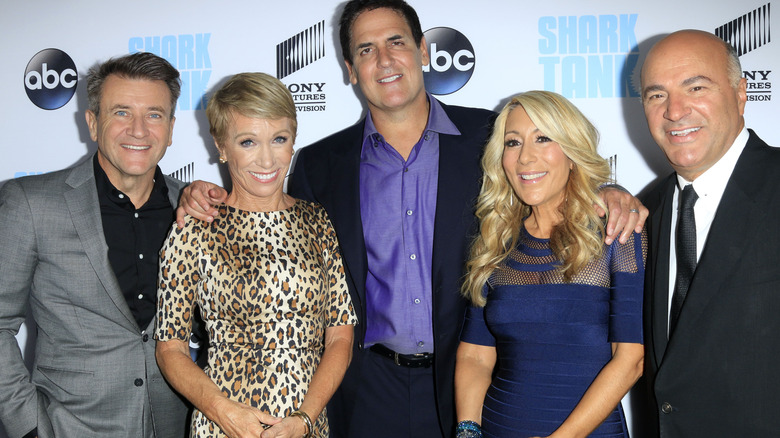Where Is Bear Minimum From Shark Tank Today?
The value a guest shark brings to "Shark Tank" can vary greatly. Sometimes, they feel like an afterthought, and might not invest in anything. Other times, they have an inspiring story and save like-minded entrepreneurs from walking away without a deal. On Season 10 Episode 1 of "Shark Tank," Jamie Siminoff was more the latter, contributing significantly to this particular installment of the show. What makes him such a great guest?
Siminoff actually first appeared on "Shark Tank" in Season 5 Episode 9, but not as a judge. Rather, he was a contestant, asking for $700k in exchange for a 10% stake in his company, DoorBot. His product of the same name let homeowners see a video feed of whoever rang their doorbell and even speak to them through a two-way audio system. Unfortunately, only Kevin O'Leary wanted to invest, and his counteroffer was too steep for Siminoff to accept.
Flash forward a handful of years, and Siminoff sold DoorBot, now renamed "Ring," to Amazon for over $1 billion (via Reuters). No wonder "Shark Tank" asked Siminoff to come back as its first-ever contestant-turned-judge guest shark! That's a great success story, but did Siminoff actually invest in anything during the show's Season 10 premiere?
Did the Sharks do the Bear Minimum?
After the sharks welcomed Siminoff back onto the show, three different pitches were made, none of which Siminoff invested in. Last but not least, though, married entrepreneurs Cory and Heidi Santiago came in seeking $100k in exchange for a 20% stake in their business — Bear Minimum. Investing in cast iron cookware is one of many camping food hacks any seasoned camper knows about, but cast iron is bulky and takes up a lot of space. That's why Bear Minimum instead offers the Bear Bowl, a cooking pot that folds flat, making it easy to pack alongside other outdoorsy gear.
The sharks were touched by the Santiagos' perseverance. Both had experienced bouts of unemployment in the recent past and they even suffered a middleman stealing money from their previous business. Yet, here they were, working multiple jobs and pitching another startup company. Still, most of the sharks passed on investing in them. So, who came to the rescue? Siminoff, of course, offering the Santiagos $100k for 25% equity (per Shark Tank Recap). "You guys have grit. I like the comeback thing," Siminoff explained his reasoning, calling back to his own experience on the show. "The best university you can go to is failure."
The deal was struck. So, did Bear Minimum end up like Ring and become a billion-dollar company? Sadly, it does not appear so.
It seems Bear Minimum is doing the minimum
"Shark Tank" tends to give companies a sizable bump in publicity. As Siminoff explained while writing for Entrepreneur, DoorBot was about to go under before he first appeared on the show. Thankfully, his televised pitch gave that business the recognition and validity it needed to turn things around and eventually become the widely popular Ring.
Before appearing on "Shark Tank," the Bear Minimum business had raised more than $40k via Kickstarter, sold over 3,000 units, and even made it onto Amazon, as reported by KREM2. Better yet, Bear Minimum was breaking even at that point in time. Even so, "it was intense," Cory told KXLY of the "Shark Tank" pitching process shortly after filming his segment. Thankfully, sales did indeed go up — from a few units per day to a hundred units per day. During that time, Bear Minimum was also in the process of finalizing its deal with Siminoff, a partnership that the Santiagos felt optimistic about. Unfortunately, no confirmation of such a deal has been made public.
It appears that business has slowed down. A search for "Bear Bowl" on Amazon doesn't yield anything related. Plus, Bear Minimum's products now only include its "Baby Bear" size (rather than the Mama and Papa Bear sizes). We do know that Siminoff followed through with a separate culinary investment that same season, Moink from "Shark Tank," but for Bear Minimum, the deal may have fallen flat.


